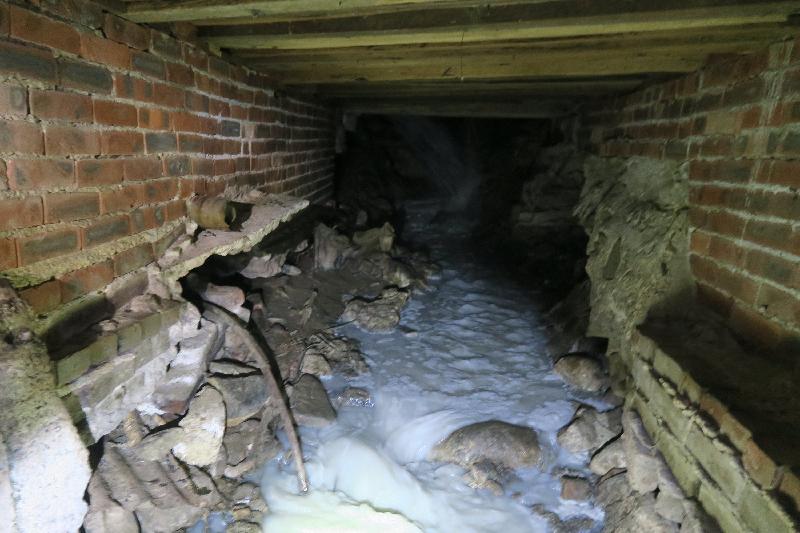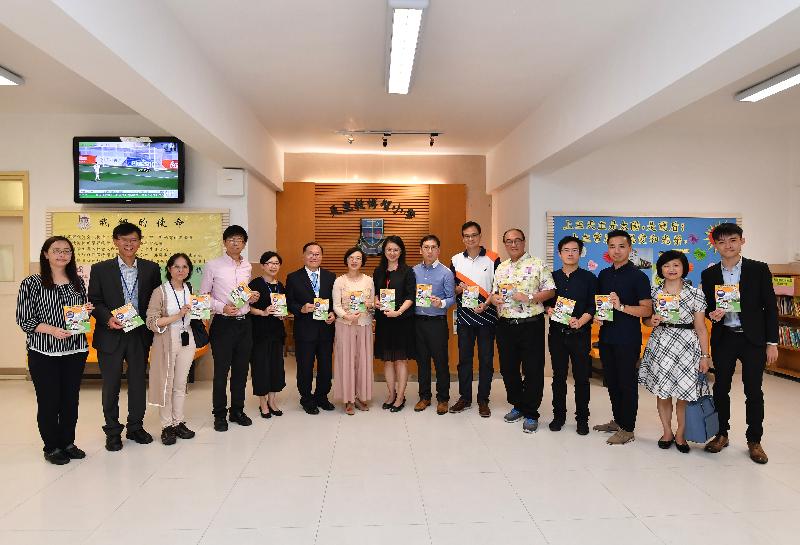The Secretary for Food and Health, Professor Sophia Chan, today (September 4) visited a primary school in Wong Tai Sin to learn about the measures taken by the school to tackle dengue fever in the new school year. She also appealed for parent-school co-operation to carry out effective mosquito prevention and control measures with a view to preventing the spread of dengue fever.
Accompanied by the Chairman and the Vice Chairman of the Food and Environmental Hygiene Committee of the Wong Tai Sin District Council, Mr Ho Hon-man and Mr Wong Yat-yuk, Professor Chan observed the mosquito control work in the school and took the opportunity to chat with the pupils. They were pleased to learn that the school has been well prepared for the commencement of the school year and that the school staff regularly inspect the whole campus and clear stagnant water to prevent mosquito breeding.
Professor Chan said, “To help schools get well prepared in the new school year to prevent the spread of dengue fever, the Pest Control Teams of Food and Environmental Hygiene Department (FEHD) and the school management inspected the School Village in Tsz Wan Shan and conducted a joint anti-mosquito operation on September 1. The FEHD staff also gave guidance to the schools’ officers-in-charge on continuous mosquito prevention and control. Upon the request of the schools, the FEHD will provide technical advice to their staff responsible for anti-mosquito work.
“In fact, the FEHD has completed its inspection work at schools in areas within a 500-metre radius of the residences and activities of patients of confirmed local dengue fever cases in Wong Tai Sin District as well as all schools on Cheung Chau. Schools were reminded on the spot to undertake anti-mosquito work. The FEHD has inspected 36 primary and secondary schools and 39 kindergartens in Wong Tai Sin District.
“Since the occurrence of a number of confirmed local dengue fever cases from the middle of last month, the Food and Health Bureau has been staying vigilant and took corresponding measures immediately together with the Department of Health (DH), the FEHD and the Hospital Authority (HA). Actions taken included the activation of the e-Dengue enhanced surveillance system by the DH and the HA to allow healthcare staff to identify patients and make reports early; and the enhanced surveillance by the DH, jointly with public and private hospitals and also private doctors, to facilitate early referrals and timely control. Also, the DH’s Centre for Health Protection issued letters to all schools as soon as practicable to remind them to conduct mosquito control in their campus and advised students and staff to take proper measures to protect themselves from mosquito bites. When necessary, the schools may contact the FEHD to request for technical support on anti-mosquito work.
“The FEHD will speed up announcement of the latest information on the situation of mosquito infestation with a view to facilitating the residents of the relevant districts to stay more vigilant in taking mosquito preventive measures. Under a stage-by-stage approach, the first stage of the ovitrap index will start to be released next week. Meanwhile, the Government will make reference to the practice of other places to explore ways to update the surveillance system of mosquito infestation in order to let members of the public to obtain the relevant figures in a more timely manner.”
As at September 3, a total of 28 confirmed local dengue fever cases had been recorded in Hong Kong this year. From August 15 to September 2, the FEHD has carried out fogging operations at a total of 2 305 locations over the territory and cleared a total of 23 243 existing and potential mosquito breeding places. The Government will continue to carry out the all-out intensive anti-mosquito operation in order to curb the spread of dengue fever. Parents are also advised to adopt mosquito prevention and control measures at home and co-operate with schools to avoid students from being infected owing to the problem of mosquito infestation.
Professor Chan reminded the public that infected persons can transmit the virus to mosquitoes through mosquito bites even if they remain asymptomatic or before their onset of symptoms, leading to further spread of the disease. Hence, members of the public, including teachers and students, returning from affected areas of dengue fever should apply insect repellent for 14 days upon arrival in Hong Kong. Those with symptoms of dengue fever should seek medical advice promptly.
Meanwhile, the CHP also appeals to members of the public who have visited Lion Rock Park to apply insect repellent for 14 days after their last visit, and those who reside in or visit Cheung Chau to apply insect repellent during their stay and continue applying it for 14 days after their last day of stay to prevent infection and secondary spread.
The public should call 1823 in case of mosquito problems and may visit the dengue fever pages of the Centre for Health Protection (CHP) and its Travel Health Service, the latest Travel Health News, tips for using insect repellents, the CHP Facebook Page and YouTube Channel, and the FEHD’s Guidebook on Control and Prevention of Mosquito Breeding for more information.
read more







